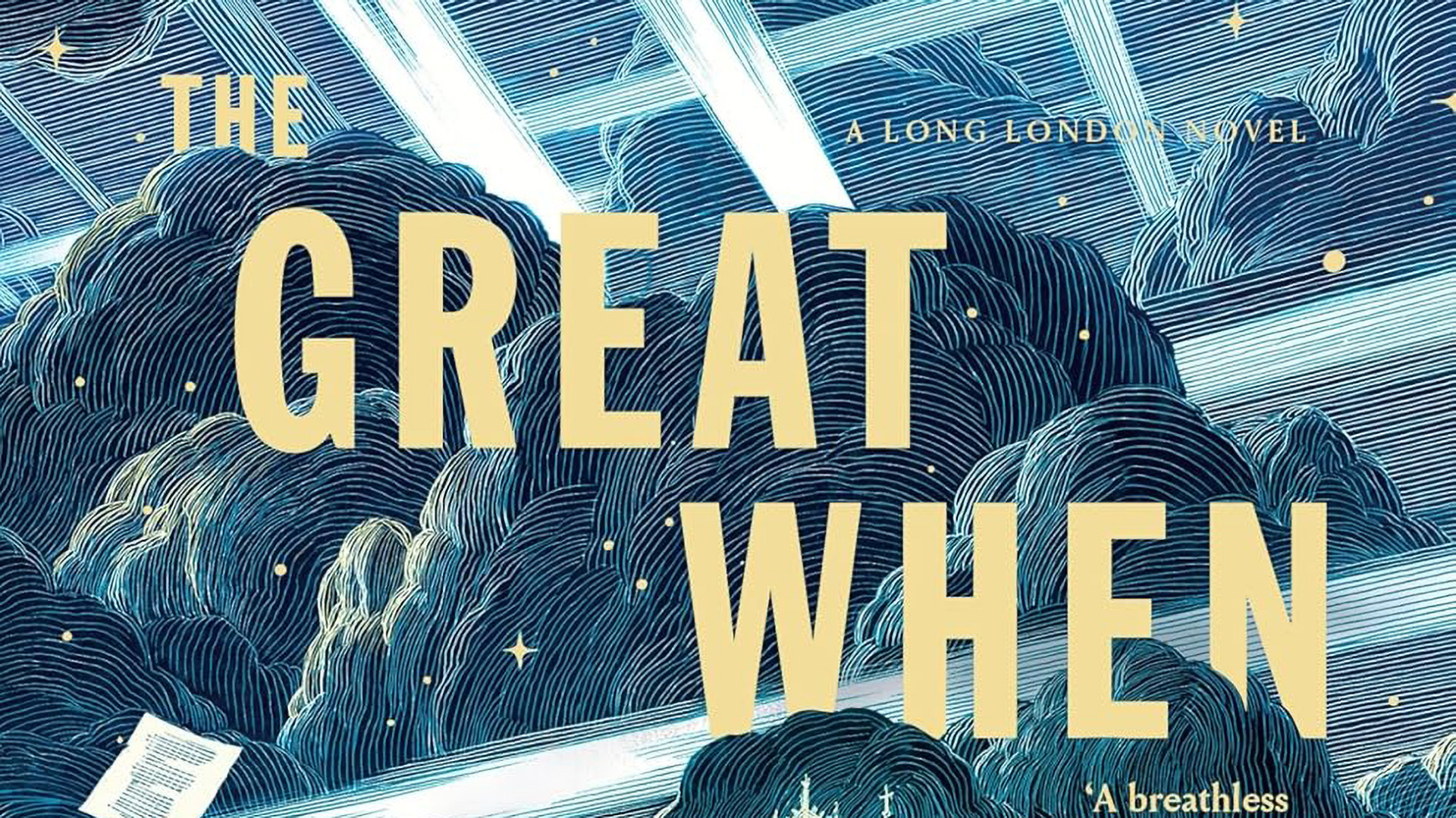The Great When by Alan Moore

I’m a big fan of the wonderfully eccentric Alan Moore, so I bought the recently published The Great When for my birthday. I read it completely — which is actually not that common for me, I often abandon books, especially fiction books, half way through, or even 80% of the way through sometimes. There was one point where I almost abandoned this book, but the chapter ended in a cliff-hanger, which kept me reading.
I think Moore was trying to make something of broader appeal than his usual works. Since the appeal of Moore is his eccentricity, and depth of his knowledge in all things esoteric, making something of broader appeal means something slightly duller, less mysterious than his other work. With The Great When he seems to aiming to do what he did with his enormous novel Jerusalem, which is about his home town of Northampton, but for London. Jerusalem — which I still haven’t finished but intend to — is a fascinating, dense, multi-layered novel, which probably could do with a good editor, if a brave enough editor could be found. It’s everything I like about Moore — wonderfully imaginative and weird. (I’ll write a review of it when I’ve finished it.) Unfortunately The Great When is not the equivalent novel but for London. Still a good novel but lacking the depth.
I was hoping for more about William Blake in The Great When. Moore is very influenced by Blake, and subtle references to Blake usually pepper his works. Blake is mentioned three or four times in the book, but in quite literal ways. There was no point where I got some joy from spotting an obscure reference to Blake, the references to Blake are spelled out clearly. This is a sign I think of why Moore is better writing for weirdos who are into Blake than for a general audience that wouldn’t get obscure Blake references. I expect The Great When has been edited by the publisher, and is slicker for it in comparison to Jerusalem, but also less interesting and shallower.
The basis for the book is the idea that there is a second London — a place that is simultaneously both real and imaginary, like Blake’s Golgonooza. A book that should only exist in that second place (a book that doesn’t exist, but does in a novel) escapes and ends up in the hands of the protagonist of The Great When, who works in a bookshop. So the novel mentions various books that talk about imaginary places, and introduced the to a number of other interesting esoteric works:
Tlön, Uqbar, Orbis Tertius by Jorge Luis Borges (1940)
This short story starts with the discovery of an entry in an encyclopedia about a place that doesn’t seem to exist. Further investigation uncovers the existence of a whole encyclopedia just about this seemingly fictional place. As more is discovered about it, the fictional place starts to become real.
The Great God Pan by Arthur Machen (1894)
In this short story, a Dr. Raymond performs brain surgery on a young woman named Mary so that see can see the supernatural realm. The young woman goes mad. Later in the story it is revealed that she had a baby with the god Pan whilst experiencing the supernatural realm, that when adult causes mysterious events and suicides among London’s elite.
N by Arthur Machen (1936)
This novel explores the idea of a supernatural realm in London, a cause of both wonder and horror. But those who visit it cannot convince others of its existence, and are treated as insane. In Moore’s The Great When the protagonist discovers a book that doesn’t exist, that is mentioned in N. The book has escaped from the other London — the mystical London of the imagination. He must return it, or face terrible consequences.
Overall, I was a bit disappointed by The Great When, it felt a bit shallow when compared to Jerusalem. But it may have been good enough for me to read the next in the trilogy, when it is released. Let’s see.